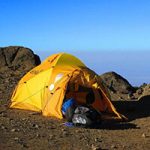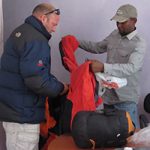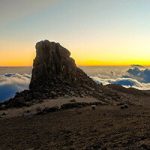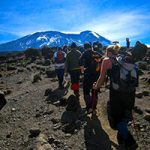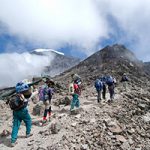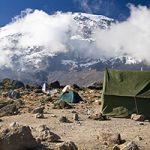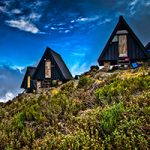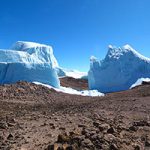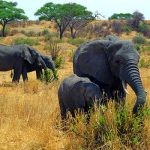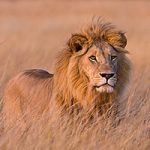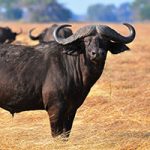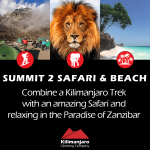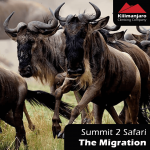
1. DOWNLOAD ALL THE DOCUMENTS
You will have received a link and password to the DOCUMENTS page.
Please download all the following:
- Booking & Liability Release Form
- Client information Form
- Airport Cheat Sheet
- Visa Upon Arrival Instructions
- Kili trip Preparations Notes
- Equipment Checklist
- Route Itinerary
- Training Plan
DOWNLOAD THE DOCUMENTS HERE
2. SIGN AND RETURN ESSENTIAL FORMS
In order to be fully confirmed on your trip, the below documents need to be received within two weeks of putting down your deposit.
1.Booking Conditions and Release of Liability
A link to this form was sent to you upon booking your trip.
DOWNLOAD THE DOCUMENTS HERE
2. Photo or Photocopy of Your Passport Information Page
3. PURCHASE TRAVEL INSURANCE
We strongly encourage you to purchase travel insurance within two weeks of making your deposit. Deposits are non-transferable and non-refundable, and we are not able to make changes to our cancellation policy for any reason.
It is important to have the correct travel insurance for climbing Kilimanjaro. It is compulsary to have travel insurance to join one of our treks.
Some of the key inclusions you will require in your Kilimanjaro travel insurance policy are the following:
- Make sure your policy covers you for the altitude you will be visiting (6000m)
- The policy should cover you for evacuation by helicopter in case of emergency
- There should be adequate medical cover and cover for loss of equipment
We highly recommend WORLD NOMADS for your insurance
4. CONFIRM PASSPORT VALIDITY
-
Make sure your passport is valid for at least six months beyond your return date. If not, start the passport renewal process immediately.
-
Make sure you have at least two blank facing pages in your passport. This is required for obtaining your entry visa.

5. INTERNATIONAL & DOMESTIC FLIGHTS
Flights typically become available 10-11 months prior to departure.
Although we do not deal with flights we are here to assist you to find the best flight options to fit your schedule.
You need to fly in to Kilimanjaro International Airport (JRO)
Typical Airlines include:
- KLM
- Turkish Airlines
- QATAR
- Ethiopian Airlines
- Kenyan Airways
From the USA
- DELTA
DOMESTIC FLIGHTS
If you are joining one of our Summit 2 Safari & Beach packages, you will also need to book a Domestic flight to Zanzibar. We will help you with finding the best flight and price for this part of the trip once you have your international flights arranged.
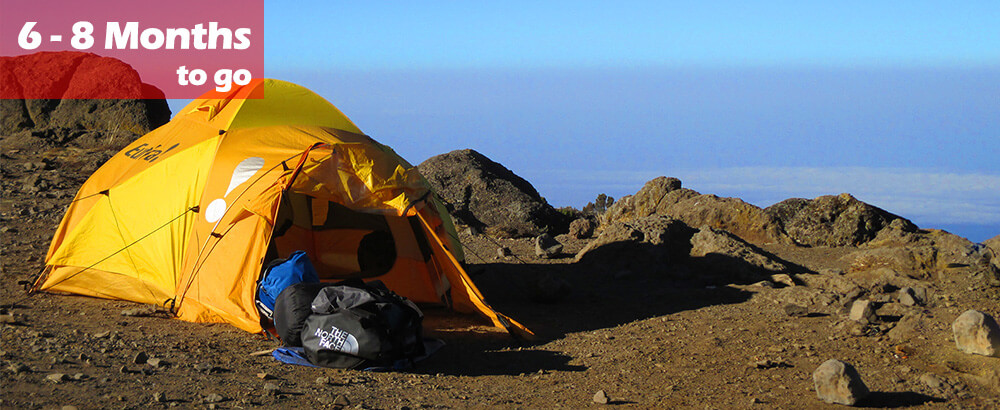
6. CLIENT INFORMATION FORM
This form must be filled out and returned to us before your departure to provide us with your travel insurance information, emergency contacts, dietary requirements, etc.
7. EQUIPMENT CHECKLIST
It’s time to start getting your equipment together and make an inventory of what you still need. Run through the checklist and either purchase or fill out our rental form for the items you still need.
Remember, hard-sided luggage is not allowed, and there is a 15 Kg / 33-pound combined weight limit for your carry-on and duffel.
DOWNLOAD THE EQUIPMENT CHECKLIST
Soft-Sided Duffel Bag: Due to aircraft and vehicle space in Tanzania, your checked luggage must be a soft-sided duffel bag no larger than 30”L x 15”W x 15”H, without a rigid structure. Wheeled duffels are acceptable if they do not have hard sides. . Combined baggage cannot exceed 15 Kg33 pounds.
Soft-Sided Day Pack: This bag will serve as your carry-on for international flights and can then be used as your day pack while in Tanzania. During your flight to Tanzania, this bag should contain one complete change of clothes, medications, essential toiletries, binoculars, your camera and other irreplaceable items, like your passport, wallet and electronics.
Spare Foldable Duffel Bag: If you tend to bring back lots of souvenirs when you travel, pack a small spare foldable duffel bag in your main duffel. You can also use this bag to leave any items at the hotel you are not taking on the mountain or safari.
Note: If you are extending your trip and require additional internal or inter-Africa flights, please note that you may need to adhere to the 15 Kg/ 33 lb. weight allowance and consolidate your belongings into one bag.
Laundry: Laundry is available after the trek and before the safari for a small fee (about $1-3/item). In most camps, and even some lodges, this is done by hand, and laundry is air dried. You may want to bring several mesh or nylon packing cubes or stuff sacks to organize your clothing.
Toiletries: Please note that camps and lodges provide shampoo, conditioner and soap. Some guests choose to bring a small amount of their preferred brand from home, but this is not required.
KCC PACKING TIP !!


To help you organise your gear and clothing while on the mountain, we suggest using PACKING CUBES to pack your Duffel Bag. This will help you locate the correct clothing needed for the day and reduce the stress of getting ready in the mornings / evenings.
8. TREK EXTENSIONS
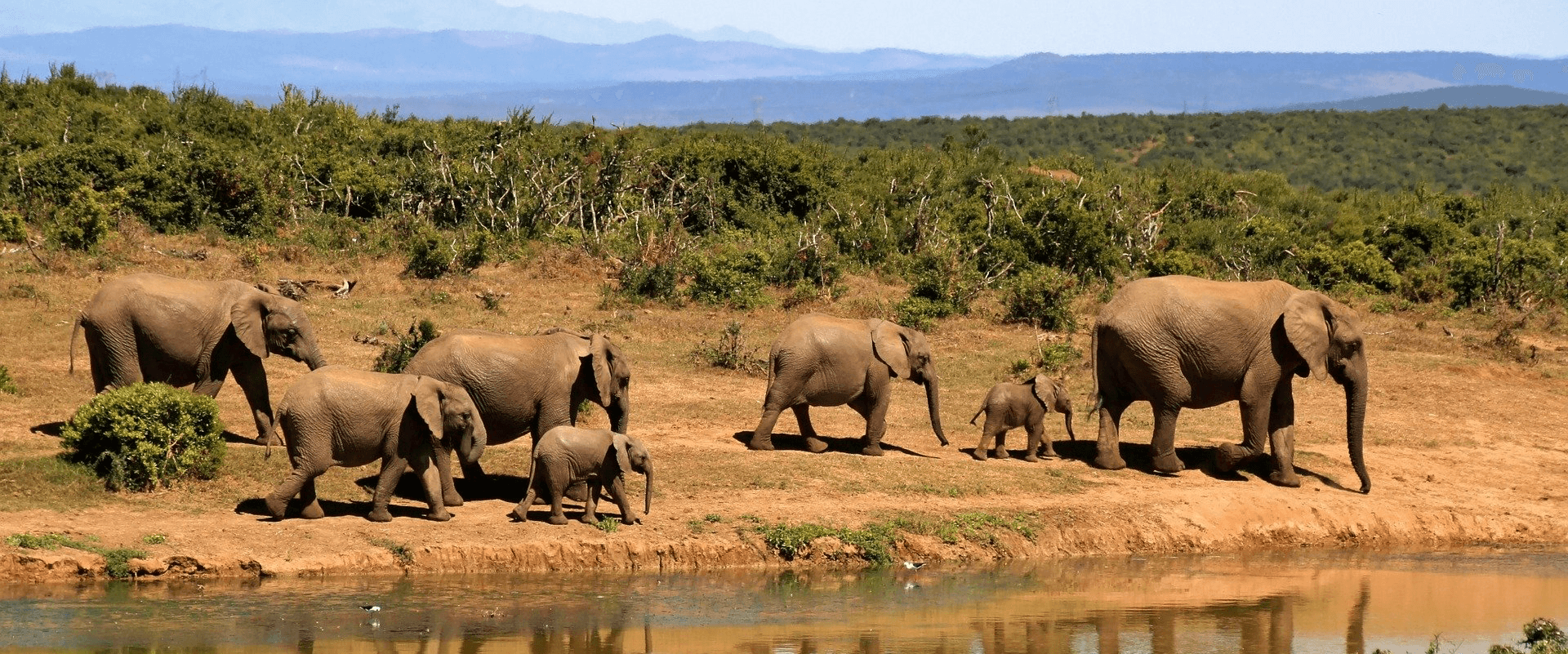

SAFARI
When embarking on a Tanzanian safari, you can expect an unforgettable experience filled with up-close encounters with the diverse and fascinating wildlife that inhabits the country’s national parks and conservation areas. From seeing the iconic “big five” (lion, elephant, buffalo, leopard, rhinoceros) to witnessing large herds of zebras and wildebeest roaming freely across the savannah plains during the Great Migration in Serengeti National Park, there is no shortage of incredible sights to behold.
PACKING FOR SAFARI – WHAT TO BRING
You’ll want casual attire you can move around and relax in—and don’t mind getting a little dirty. Once you book your safari, we’ll mail you a detailed packing list to help you prepare. If you are trekking with us, you will have most things already covered. In the meantime, here’s a shortlist:
Luggage
Clothing
Footwear
Essentials
Accommodations
Additionally, you can look forward to accommodation in luxurious lodges or intimate tented camps that offer top-notch service and delicious cuisine.
-
All the tented camps have a spacious, walk-in, custom-designed canvas tent with bug-proof, fine mesh screens.
-
Beds have proper mattresses, fine linens, and pillows.
-
En-suite bathrooms include eco-friendly pump-flush toilets, safari-style pull-chain showers (flip-flops recommended), wash basin, and towels.
-
Staff will be available at all times, and a night watchman patrols the grounds.
Meals & Laundry
-
Meals are taken in a group dining tent unless otherwise noted. You may request for meals to be served in your tent.
-
In most of lodges you will be on a full-board food and drink plan. A cash bar is also available for non-native drinks and sprits. Credit card facilities may not be available at camp!
-
Laundry is available at camp for a small fee (about $1-3/item). Items need to air dry, so this service is weather permitting.
Electrical Power
-
Tented Camps use solar-powered lighting; please bring a headlamp as back-up and for late-night reading.
-
There are no power outlets in your Nyumba tents; charge all batteries and devices before leaving home.
-
Shared charging stations are available at most tented camps in the lounge, and in all KCC vehicles. Outlets accept US-style plugs.
-
Lodge outlets require either UK or European adapters for use
Weather
Weather on a Tanzanian safari can vary greatly depending on the time of year and specific region being visited.
The country experiences two distinct seasons:
- Wet (November to May)
- Dry (June to October)
During the wet season, intense rainfall can create muddy conditions and make wildlife sightings more challenging. However, this time of year is when the landscapes are at their most lush and vibrant, making for stunning photo opportunities. In contrast, the dry season brings clear skies and cooler temperatures, leading to optimal game viewing conditions as animals gather around watering holes.
It is important for safari-goers to pack layers to accommodate for temperature fluctuations throughout the day, as mornings and evenings can be quite cool while afternoons are often hot. Overall, being prepared for varying weather conditions will ensure a comfortable and enjoyable experience while exploring Tanzania’s incredible wildlife reserves.
-
Evening temperatures at higher elevations around the Ngorongoro Crater and in the Eastern Serengeti Ecosystem may fall as low as 4-5°C / 40° F. During July and August please pack cold-weather clothing
-
Sporadic rain may occur year-round; a lightweight waterproof jacket is recommended.
Wildlife Viewing
Our expert guides will lead game drives through the stunning landscapes while sharing their knowledge about the flora and fauna found in Tanzania. Overall, a Tanzanian safari promises an adventure that will leave visitors in awe of the beauty and majesty of Africa’s wildlife and landscapes.
-
Your highly trained guides will find the best wildlife viewing locations each day with varying morning and afternoon drives.
-
Your guide will answer any questions you have about local customs and traditions and explain when it is appropriate to take photos of local people – if you are not sure, just ask your guide!
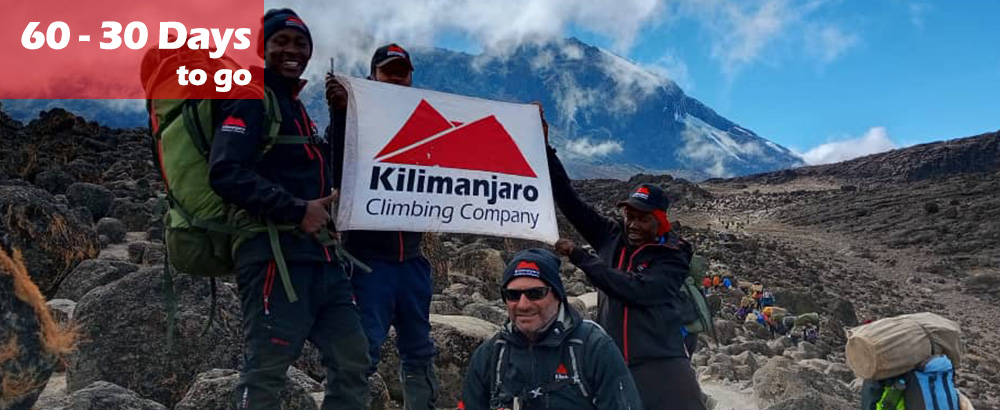

9. Final Payment
Your final balance payment must be received 45 days prior to your departure date. Our office will send you the final invoice with the balance.
- We accept final payments via wire transfer or electronic funds transfer in $USD, £GBP, EURO and $AUD.
- Credit cards are not accepted.
- Include your invoice number with all forms of payment.
- The banking details for your selected currency will be on your final invoice
Once you have sent your payment, please let us know via phone or email. We will then notify you when the payment has been received.
Cancellations
If you need to cancel your trip for any reason, please let us know as soon as possible. A written cancellation is required by mail or email; cancellation fees are applicable based on the date we receive your written cancellation. Please refer to the full cancellation policy on your Booking Conditions Form for complete details and note that deposits are non-refundable.
10. Trip Expectaions
Get familiar with details about your your trip, meals, weather, Tanzanian culture, what to bring, and more, which are all outlined below in our Trip Preparation Notes


11. Vaccinations
While the COVID-19 vaccination is not required for travel to Tanzania, KCC and the government of Tanzania strongly advise all travelers to be fully vaccinated, including booster doses, as a precaution. There are no other immunization requirements if you are traveling to Tanzania directly. However, if your itinerary includes travel to Kenya, Ethiopia, Rwanda, Uganda or any other yellow fever endemic countries, immigration authorities in Tanzania may require proof of vaccination for yellow fever (or an appropriate medical waiver) as a condition of entry.
What are the required vaccinations for Kilimanjaro?
Part of planning your trek should involve doing some research in to what the recommended vaccinations for Kilimanjaro are and consulting your doctor for a health check.
All climbers should have a medical check prior to attempting the mountain. Ask your doctor if high altitude trekking is permissible for your age, fitness level and health condition. Ask if you have any preexisting medical conditions that can cause problems on the climb. Ask if any of your medications can affect altitude acclimatization. Ask whether Diamox can be taken with your existing prescription medicines.
Vaccination requirements for Tanzania change and it is important you visit your doctor or local travel clinic to discuss what vaccinations and drugs you require. There is also a risk of contracting Malaria while visiting Tanzania and precautions should be taken.
Recommended vaccinations for Kilimanjaro and Tanzania include:
- Typhoid
- Polio
- Hepatitis A
- Hepatitis B
- Tetanus
- Meningococcal meningitis
- Rabies
- Anti-Malarial Medication


12. APPLY FOR ENTRY VISA
HOW DO I GET MY VISA?
To gain entry into Tanzania, most nationalities require a visa. Make sure that you have two free pages in your passport and 6 months validity on your return date.
Although we have not had any problems obtaining a visa upon arrival, the Tanzanian High Commission advises visitors to apply for this in advance as they reserve the right to deny you a visa on arrival.
VISA UPON ARRIVAL
Obtaining your visa upon arrival is a relatively simple process. On entering Kilimanjaro International Airport (JRO) you will see two lines. The line on the right is for people applying for visas and the line straight ahead is for people who already have a visa. If you are applying for a visa you will be asked to fill out a form, show your passport and pay the relevant fee in US dollars.All European & American citizens need a visa which you can apply for prior to departure or upon arrival. The cost for European and Canadian citizens is $50 and for $100 for US citizens. Those of other nationalities are advised to have USD 100 in cash ready, though in most cases the cost will be only USD 50.
PLEASE DOWNLOAD AND READ THE TRIP NOTES – PAGES 6 – 7 for more information and assistance.
DOWNLOAD TRIP NOTES HERE
ARRIVING AND LEAVING FROM KENYA
If you arriving in to Nairobi instead of JRO you’ll need to take the Riverside Shuttle bus from Nairobi to Arusha. Passing through Kenya in this way you’ll require a Kenyan tourist visa which can be purchased at the airport when you land. A tourist visa for travelling to Kenya from Tanzania if opting to fly out from Nairobi, can be purchased at the Namanga border which you are required to cross, however if you entered Tanzania from Kenya on your way to Kilimanjaro then your original Kenyan visa will probably still be valid as nowadays Kenyan tourist visas are issued on multiple-entry basis.
APPLYING ONLINE
You can now apply for an Online Visa to visit the United Republic of Tanzania (both Tanzania Mainland and Zanzibar). You are required to fill in the online form, make payment, and submit your application online. Your form will be internally reviewed and processed. Please note that the visa application can only be made within three months of the date of travel.
KCC will assist with this process if needed.
See the link below to start the process for the online visa
Applicants will be notified through their e-mails whether their applications have been accepted or rejected. They may also TRACK their application statuses through the online system. Applicants may as well be required to visit the nearest Tanzanian Embassies or Consular Offices for interviews.
Completing your Tanzanian Tourist Visa Application Form
When completing the visa application form some of the answers to the questions asked are not obvious. Below are suggested responses:
Type of visa applied: Multiple Entry
Port of entry: JRO (if arriving to Kilimanjaro International Airport) Namanga (if arriving by Shuttle Bus from Nairobi)
Means of financial support: Cash and credit cards
Reference in Tanzania: Tulia Lodge, Arusha, Tanzania
Extra Information :
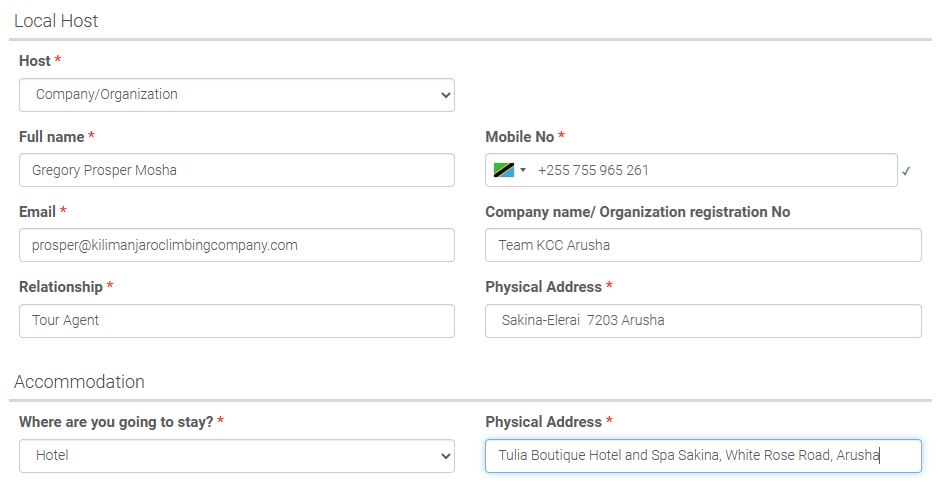

VISA APPROVAL
When your visa is approved, typically after 5-15 business days, you will receive a Visa Application Notification via email with a link to download a Visa Grant Notice.
13. BUDGET CONSIDERATIONS
Money & Currency:
U.S. dollars are accepted throughout Tanzania. Local vendors and markets may not be able to provide change for larger bills, so we advise using small bills ($1, $5, $10) for small purchases, but $50 and $100 are okay for larger purchases and tips.
Travelers’ checks are not recommended, as they are not widely accepted. Canadian residents should exchange Canadian dollars for U.S. dollars before departure.
Credit Cards and ATMs:
Credit cards are accepted at some lodges and some higher-end shops; however, usage comes with surcharges from 6 to 15 percent. Although there are many ATM’s, please do not rely on using ATMs in Tanzania, as they are not always available and are only compatible with specific bank cards. We advise bringing a credit card for emergency travel expenses and for lodges and vendors that do not accept cash.
Check Your Notes / Bills
- No tears
- No marks
- No notes / bills older than 10 years
Low denominations
$1, $5, $10 are best for some tips, beverages and small souvenirs
Higher denominations
mainly $20 and some $50 or $100 are best for large souvenirs and tips for guides
HOW MUCH SHOULD I BRING?
Typically, each guest brings around $1,000 – $1,200: $400 – $500 cash for souvenirs and beverages, $350 – $450 cash for tips, and $250 emergency cash. Please note many guests choose to bring more, as it may be difficult to obtain more cash, but you can always bring extra back home.
There are four primary expenses you should consider when planning your budget:
-
Emergency Funds: With any kind of travel, it’s best to prepare for the unexpected. We suggest carrying a credit card and at least $250 in U.S. dollars for emergencies. Please note that MasterCard and Visa are more widely accepted than American Express, and some merchants require chip-enabled cards.
-
Beverages:
Soda: $1
Diet soda: $2
Beer: $3
Liquor (gin, vodka, whiskey, Amarula): $3
Glass of wine: $6
Bottle of wine: $20
Bottle of premium wine: $35Prices at lodges are higher. Diet sodas, energy drinks and ice are typically not available.
-
Souvenirs and Gifts: Small souvenirs such as carved crafts, beaded jewelry, T-shirts, Maasai shukas (fabric), etc. often cost less than $20. Larger pieces of artwork can range significantly, starting around $20 and going up to hundreds or thousands of dollars.
-
Tips: Tips for safari guides and camp staff are tokens of added appreciation and are customarily given to the people who help provide the best safari experience possible. KCC supports equitable wages; the practice of tipping is the norm for the tourism industry in Tanzania. Please see the TRIP NOTES for our guideines.
14. ELECTRICALS, NETWORKS & COMMUNICATION
Networks & Communication
Some mobile / cell phones have sporadic coverage; please speak with your provider to find out if it offers international service in Tanzania. Keep in mind that your coverage will not be consistent. Your guides will have two-way radios, cell phones, and satellite phones for guiding and emergency use only.
e-SIM: Staying connected while in Tanzania
The easiest and cheapest way to stay connected is through an e-SIM
KCC Recommendation – Airalo
https://www.airalo.com/
If you sign up and use our referral code below, you will get $3 off your first purchase. CODE: SIMON8036
ELECTRICALS
- There is no electricity on Kilimanjaro. Charge all batteries, power banks, and devices before leaving home.
- Lodge outlets require either UK or European adapters for use.
- For Tanzania there are two associated plug types, types D and G. Plug type D is the plug which has three round pins in a triangular pattern and plug type G is the plug which has two flat parallel pins and a grounding pin. Tanzania operates on a 230V supply voltage and 50Hz.
CHARGING BATTERIES
- It is best to charge your batteries before your departure. If necessary, you can also charge them at the lodges or in the vehicles before your trek. There is no electricity on Kilimanjaro.
- Pack extra batteries, film, and/or memory cards, bringing at least 2–3 battery packs.
- Extra lithium batteries must be packed in carry-on luggage for international flights.
- While on the mountain, keep batteries in your sleeping bag at night to extend their energy life at altitude.
- If you are going on safari, each vehicle is equipped with cigarette-lighter sockets and power inverters. You will not need additional equipment to use these inverters. This is the easiest way to charge batteries on safari. All charging must be done while the vehicles are in use.

15. Flight Check-In
- Check you have the correct luggage allowances before you complete the online check-in process.
- Ensure on the correct spellings of names and use the exact details on your passport.
- Check in and downloaded your Boarding Passes.
DOWNLOAD YOUR AIRPORT CHEAT SHEET
16. PACK YOUR CARRY ON BAG
It is essential to be prepared for your mountain adventure, and that starts with your flight to Tanzania. If your baggage is delayed, it will be crucial that the following items from your packing list are in your carry-on. (Please note that you can wear many of these items on the plane.)
Ideally you should pack the following items
- Shell jacket with hood (Gore-Tex®)
• Briefs (enough for all trekking days)
• Socks (enough for all trekking days)
• Long underwear top and bottom (1 pair)
• Synthetic short-sleeve shirt (2)
• Synthetic long-sleeve shirt (1)
• Loose-fitting hiking pants (convertible/zip-off)
• Hiking boots
• One-liter water bottle (minimum 1, empty)
• Polarized sunglasses
• Toiletry kit
• Headlamp
• Money belt or neck pouch
• Prescription medications
• Camera
• Stuff sacs of varying sizes
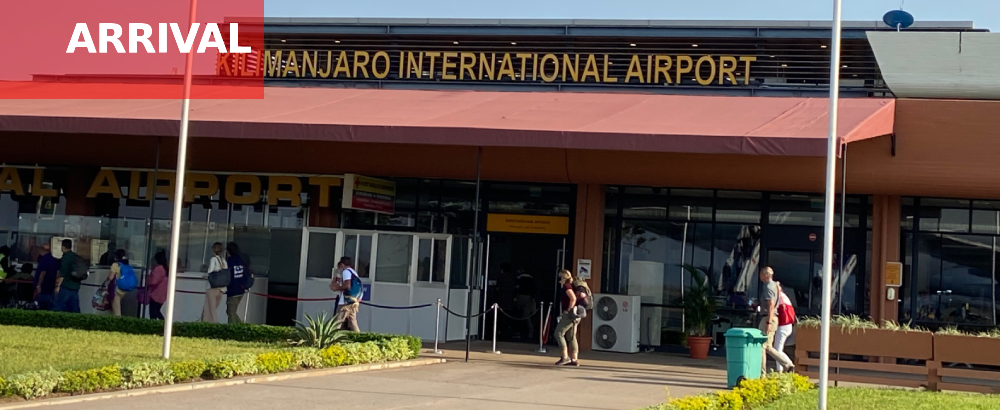
16. ARRIVALS
What to do when you land at Kilimanjaro International? Follow these step-by-step instructions and refer to the map below.
1. Have your boarding pass in hand and passport to enter the airport.
2. Obtain your visa, if you did not apply for it in advance, pay visa fee in US Dollars.
3. Proceed to Immigration to show passport and get visa validated.
4. Claim your checked bags at the baggage claim.
KCC TIP: After getting your bag from the baggage claim area, you may be approached by porters who, looking for tips, will try to carry your bags or load them onto carts. Kindly say, “no thank you” or in Swahili, “hapana asante.” Your guide is only a few steps beyond customs and will carry your bags if you wish.
5. Proceed through Customs. You may be asked if you have anything to declare.
6. Exit airport and look for your transfer guide holding a KCC placard. Your guide will check off the names of travelers as they arrive. Once everyone is gathered, your guide will lead you to the vehicles nearby.
Note: You may need to wait while other travelers in your group arrive
17. FLIGHT OR BAGGAGE DELAYS
If your flight is delayed or canceled, local airport staff are in the best position to assist you. Remain calm, clear and polite and ask about sameday options, like flying via another African hub, such as Nairobi, with continuing service to Kilimanjaro airport.
-
Contact KCC with new flight details (airline, flight number and ETA):
Weekdays during U.K. business hours: +44 7746 40 30 50
During off-hours text, call or leave a message at: +44 7746 40 30 50
In Africa, text or call: +255- 755 965 261 -
KCC will greet you at the airport and take you to your lodge.
Catching up with your group may require a few extra logistics but will be doable. Good travel insurance will cover most fees associated with flight delays and trip interruption. -
In case of lost or delayed baggage:
File a claim at the airport’s lost luggage office. Provide your claim information to the KCC staff member at the airport. Your guide will keep you informed about the status of your bags.
18. SETTLING IN
Get to know your driver
This is a great time to ask some of your preliminary questions, engage in conversation and get to know everyone.
Set your watch to Tanzanian time
UK: From early March to October, Tanzania is 2 hours ahead of the UK (GMT). From November to early March, it is an 3-hour difference (GMT).
EUROPE: From early March to October, Tanzania is 1 hours ahead of EUROPE (GMT+1). From November to early March, it is an 2-hour difference (GMT+2).
USA: From early March to October, Tanzania is 7 hours ahead of North America (EDT). From November to early March, it is an 8-hour difference (EST).
Notify your guide if you have excess baggage you want to store
KCC can store excess baggage you bring for pre- or post-trek if you let us know in advance and if your itinerary allows. This service is a courtesy, and luggage is stored at your own risk.
Keep money and valuables with you at all times
There is no need to be overly concerned about your valuables. However, for peace of mind, do not keep them in stored luggage or leave them in your room.
Use only purified water for drinking and brushing your teeth
Place a water bottle in the sink as a reminder not to use the tap for brushing your teeth in the morning.
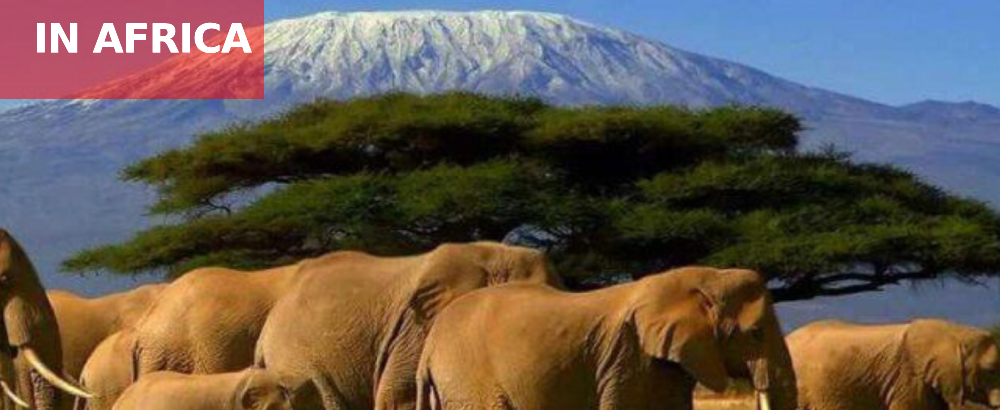
18. KEEPING HEALTHY
BUGS AND MALARIA
-
Pack repellent with 30-50% DEET: Try out DEET products at home if you have particularly sensitive skin. If you are traveling with young children, you will want to consult with a doctor about a more appropriate repellent.
-
Tsetse fly tips: Wear lighter colored clothing, no blue or black, and use citronella-based repellent in combination with a DEET repellent. Some guests find permethrin-treated clothing to be effective.
-
Cover up when mosquitoes are active: During the hours before dawn, at dusk and at night, wear long sleeves, long pants and socks.
-
Zip tents and turn off lights: To prevent bugs inside, keep your tent zipped shut at all times, and always turn out the lights when you are not in the tent.
-
Tell your head guide if you feel ill: If you experience fever, chills, sweats, headache, body-aches, nausea, vomiting or fatigue, alert your guide immediately. Meals can be adjusted if you have an upset stomach, or your guide can seek medical assistance if necessary.
TUMMY TROUBLES
-
Eat your fruits and vegetables: It is safe to eat raw fruits and vegetables at Nyumba camps, but your guide may alert you not to eat raw foods at certain lodges.
-
Wash your hands often. Bring moist towelettes and hand sanitizer for when you are on the road, away from soap and water.
-
Be prepared if stomach issues strike: It’s always a good idea to bring Imodium, Pepto Bismol or even prescription medications like Ciprofloxacin, all of which you should discuss with your doctor.
-
Try not to ingest water while showering.
-
Stay hydrated: Complimentary drinking water is always on hand in your vehicle and in camps, so take advantage of it as often as you like. Never drink or brush your teeth with tap water.
-
Keep clean and refreshed: Hot showers are available any time, on request. Staff will also provide hot water, soap and hand towels to your tent each morning and before every meal, but you can request more at any time. .




